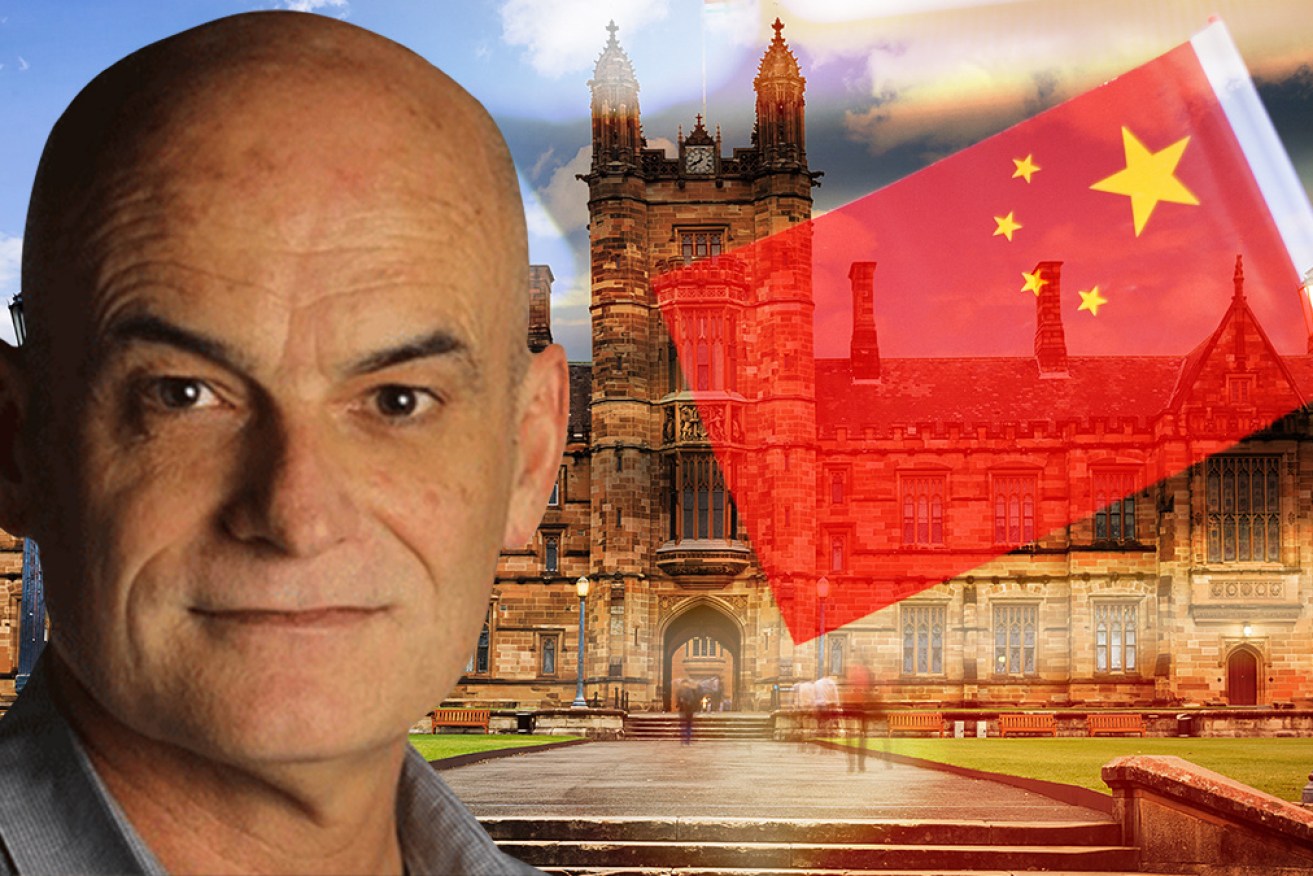Garry Linnell: Our universities are run by slow learners and the coronavirus proves it


You need a university education to get ahead in life, writes Garry Linnell.
We tell our children an awful lot of lies.
It starts soon after their birth when we fib to them about tooth fairies and Easter bunnies and chimney-climbing fat men bearing gifts.
We keep the deceptions coming as they grow older, convincing them we are the only people who can keep them safe and secure in a dangerous world.
We even lie to them about death by saying grandpa has gone to a better place.
But there is another porky we are so fond of telling our kids that we have come to believe it ourselves.
You need a university education to get ahead in life, it goes.
Three or four years spent in one of our revered higher schools of learning is a guaranteed path to a high-paying job and a secure, comfortable life.
The statistics clearly show what a lie this is.
Repeated studies have revealed more than one in two graduates have poor full-time job prospects in their chosen field.
An even larger number end up saddled with tens of thousands of dollars of study debt while pursuing careers that have little or nothing to do with the degree for which they spent years studying.
The universities have a bog-standard reply to this: Years of study in the sanctified surrounds of their colleges equips students with knowledge, discipline, greater self-awareness and an opportunity to think deeply about their future.
It might be true for some students.
But swallowing the spin of our universities has become a little harder in recent weeks.
The growing worldwide crisis around the coronavirus has exposed yet again one of the great lies about Australia’s universities – that they are run by super-intelligent, forward-thinking people who only care about learning.

Australian universities are run by slow learners, writes Garry Linnell. Photo: Getty
Last week the university sector, which has a collective degree in whinging and demanding more taxpayer dollars, was busily lobbying the federal government to allow more than 100,000 international students into the country.
After years of being warned that its over-reliance on fee-paying Chinese students was a risk no public company would dare take on, the university sector is confronting the reality that an extended coronavirus travel ban could cripple its lucrative revenue base.
For decades they have sold us the fantastical lie that a degree from their fine institutions is a passport to a better life.
At the same time, they have lowered student language standards, devised dozens of contrived and useless degrees while obsessively devoting themselves to emptying the deep pockets of China’s emerging middle class.
I know a 22-year-old woman who recently completed a communications degree at one of our most prestigious universities.
Let’s call her Susan.
She can tell you endless stories of Chinese students sitting in class with no grasp of the English language and whose essays and projects were either produced using Google Translate or by other students they paid.
One morning she was present at a meeting in which a nervous Chinese student, lacking basic English, finally managed to explain to her lecturer that she could not understand the class assignment.
Don’t worry, shrugged the lecturer. I’ll get you to do a joint project with Susan.
Her work will get you the marks you need.
These anecdotes – and there are plenty – are the end result of a tunnel-vision strategy pursued for decades.
Little wonder the universities now find themselves in such a perilous situation.
As part of its coronavirus clampdown, the Chinese government has deferred English language tests while the issuing of visas has also been delayed, forcing many institutions to push back semester dates and look at more online teaching options.
Surely you don’t need a university degree to know that any organisation with such high-risk exposure should already have a well-planned strategy in place to cope with such a crisis.
Salvatore Babones, a scholar at The Centre for Independent Studies, warned last year that a downturn in fee-paying Chinese students could be catastrophic for our universities.
He calculated that one-fifth of the annual revenue of the University of Sydney came from Chinese students.
Other prominent institutions were just as exposed and the associate professor said if these were companies listed on the stock exchange, corporate regulators would have insisted on them diversifying their risks or at least acknowledging them.
But public disclosure, funnily enough, is not one of the strong points of our public institutions of higher learning.
Don’t get me wrong. There is a valued place for higher learning in any society.
Give us more doctors and teachers and engineers because we’re going to need them.
There is also nothing wrong in pursuing learning simply for the sake of it.
But universities act as if they are immune to the forces that pummel the real world.
The shift to more part-time work has been quickening for more than a decade.
Graduate employment is at its lowest in more than two decades.
Instead of tackling these critical issues, our universities have instead been content in their single-minded pursuit of foreign fee-paying students.
Perhaps the coronavirus has finally made them realise just how vulnerable they have allowed themselves to become.
Well, you’d like to think that.
But that’s another lie we tell ourselves – that people who oversee higher education must be the smartest people in the room.
So far all they have proven to be is a group of very slow learners.








